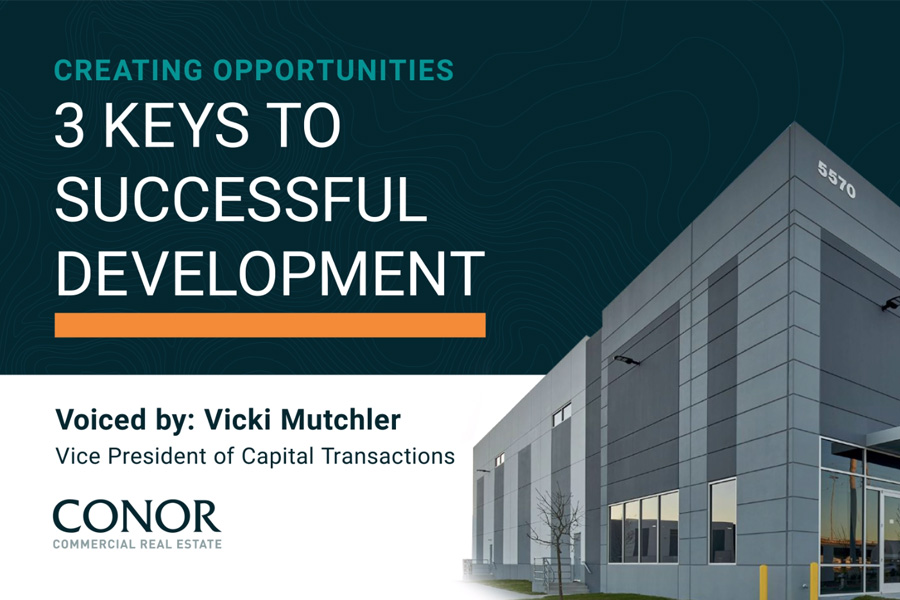
Written by Brian Quigley, Executive Vice President
Bringing industrial properties to residential communities can be a controversial topic. People hear “industrial” and instantly think of smokestacks blocking the sky and semi-trucks rumbling through their neighborhoods. What they don’t understand is that communities benefit from industrial properties just as much as these facilities benefit from the surrounding communities.
We live in an age where you can order something online and have it arrive on your doorstep in two hours. However, for this to be possible, the last-mile facilities where these items are warehoused must be located near consumers’ homes.
Additionally, proximity to dense communities is key for a company’s workforce. Not only does this provide businesses with a strong labor pool from which to hire, it also provides jobs for community members, from engineers to forklift drivers to accountants.
Industrial facilities also transform vacant, underutilized sites into Class A properties and economic engines for the community, thereby increasing the value of the land, generating tax revenue for municipalities, and bringing commerce to the community.
With all of this said, you may be wondering what developers can do to integrate an industrial building so that communities can receive these benefits while still respecting the concerns of residents.
For one, industrial facilities are no longer the eyesore they once were. Much more thought is put into the exterior design and layout of these buildings. In addition to landscaping, they often feature prominent curtain wall office entries on the street-facing side and concealed dock doors in the rear.
This configuration also helps minimize noise, light, and traffic. Landscaping, car parking, and office space provide a buffer around the exterior of the building, while an interior truck courtyard keeps truck activity contained and away from the street.
At the end of the day, our goal is to strengthen communities through real estate development while creating opportunity for our brokers, tenants, and partners. By bringing industrial developments to communities, we believe that we can achieve these goals.
To hear more on this topic, watch NAIOP Insight: Industrial Development Near Residential Areas with Brian.






